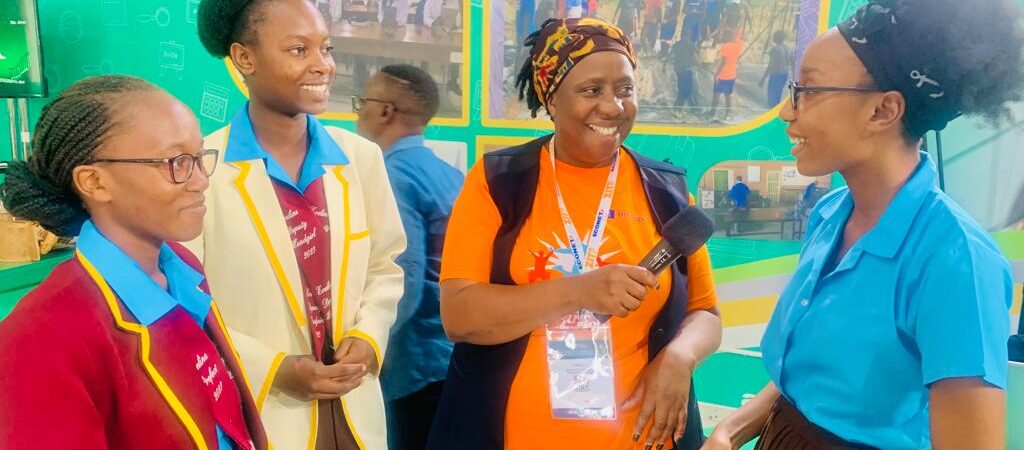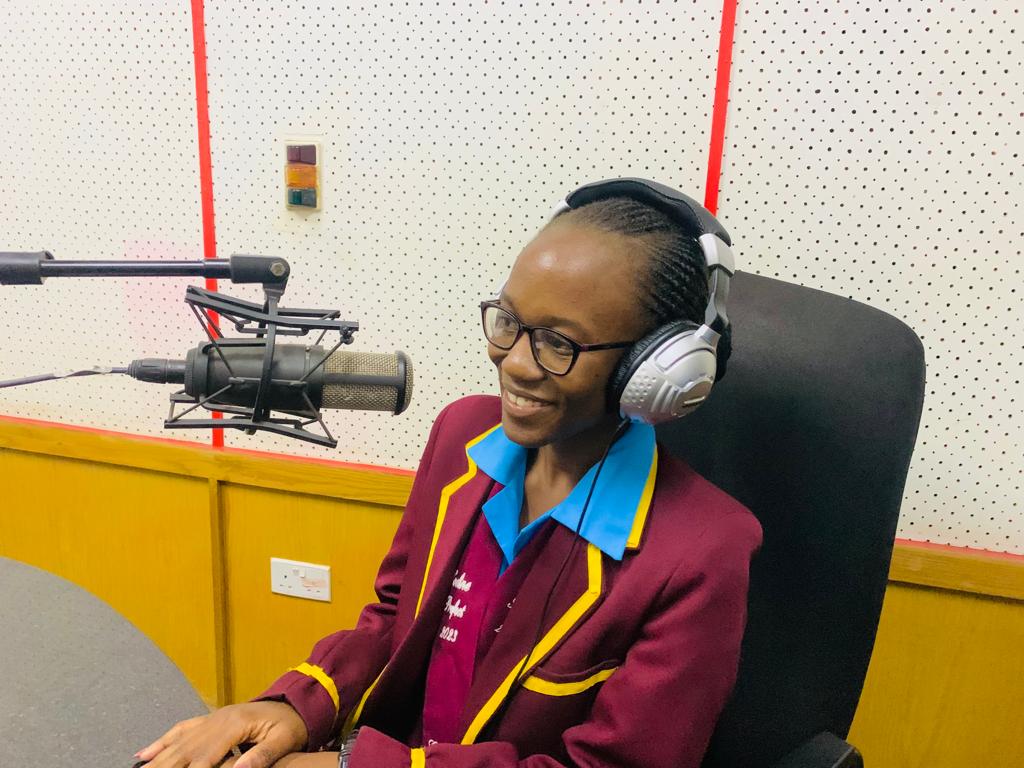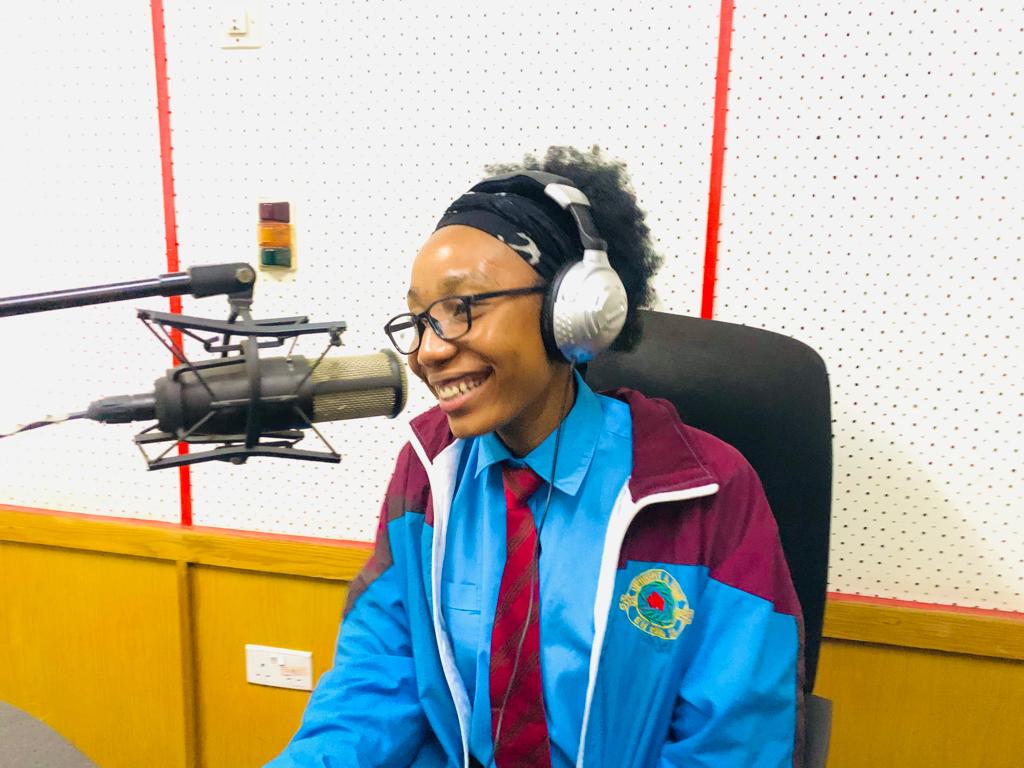
Providing audio learning material and tapping community-based knowledge and expertise were central to the project. With few books on these subjects, learners used available reference materials and interviewed people in the community to create educational audio content such as audio drama, folklore, talk shows, and podcasts. Students created recordings independently using their phones or at a local youth podcasting studio and then curated them with the help of the teacher, and finally edited them at a local studio.

Students promoting the their project at local radio station Khulumani FM
“Taking part in the projects has helped me make networks with people that I would never was going to meet in my school life” – Nadia S., Student
The final product is published on an open access online digital repository available to learners and teachers throughout Zimbabwe. During their investigations, learners also discovered that they could reach more users by compressing audio files and sharing them via WhatsApp. For the larger learning community, this ongoing project provides open access to rich, curated educational content.
“Being part of the project has made us celebrities as we have been exposed to the local media” – Natasha C., Student
Facilitating opportunities for learners to engage with real-world social problems enables me to provide them with continuous feedback and also opens opportunities for self-assessment and peer assessment. Above all, feedback from the project’s key audiences is perhaps the most important part of the learning process. This continuous feedback and joy of producing a usable product for the community is very motivating to the learners. During the project implementation process, learners are also able to identify their strengths and growth areas and to think about their possible career choices, which is important for their intrinsic motivation.

Students promoting the online digital depository at local radio station Khulumani FM
“The project is quite interesting as it has made us discover some of our hidden talents plus the joy of making a product for the community is fulfilling” – Nicole M.
When embracing Challenge Based Learning, my advice to other educators is to empower learners to take the lead and assume responsibility for their actions. Encourage learners to independently engage, investigate, and take ownership of the project. Help learners connect, network, and collaborate with potential local and global partners and utilize readily-available resources within the school, among peers, and in the community. Lastly, foster a fun working environment for students to fuel their motivation and allow them to explore beyond the perceived boundaries of curriculum standards.